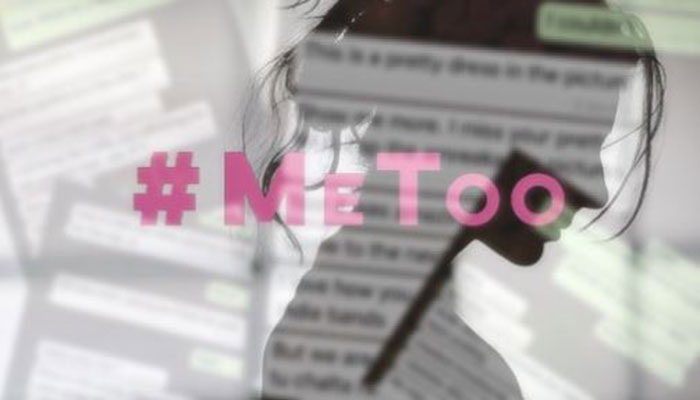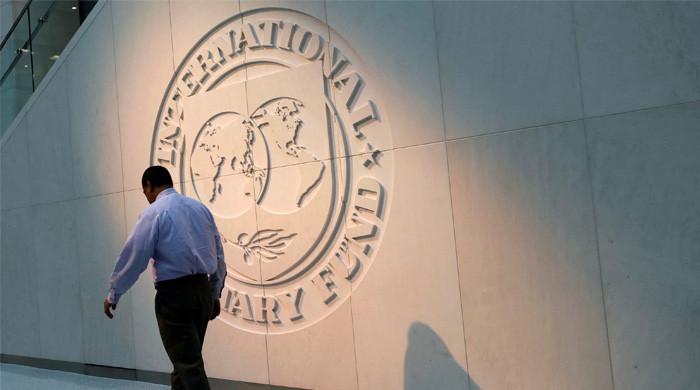Let the messenger beware
'The #MeToo movement commenced with prominent Hollywood actresses naming and shaming alleged sexual predators in the industry'
April 19, 2018

Catherine Alice MacKinnon, an American lawyer, is one of the more recognisable as well as polarising voices for feminist jurisprudence. As a legal scholar and published author, she has for decades, addressed, litigated and provided regulatory frameworks on issues of sexual harassment, pornography and consent. She identifies as a ‘radical feminist’, the essence of which strives at focusing more on patriarchy as an issue of cultural and class dominance rather than equality. It is her opinion, concentrating on giving men and women the same rights obscures reality that maleness has become the standard and measure for all things.
Despite being the torchbearer for feminism, MacKinnon recently wrote that the #MeToo movement has done more for the cause of feminism than any legislation on sexual harassment could ever hope to accomplish. Reporting sexual harassment, according to her, is onerous, emotionally draining and more often than not, assails the character and credibility of the accuser rather than the accused itself.
The #MeToo movement commenced with prominent Hollywood actresses naming and shaming alleged sexual predators in the industry. It has effectively extinguished lucrative careers of A-listers such as producer Harvey Weinstein, actor Kevin Spacey and television host Bill O Reilly, to name a few. #MeToo has also inspired thousands of women to share their stories of harassment and sexual abuse and openly name and shame their alleged abusers on mainstream and social media, culminating in resignations, terminations and entertainment empires going under. Hardly any of the victims pursued legal recourse following the allegations, except when being awarded settlements.
This accentuates MacKinnon’s point that the movement has shifted gender hierarchy’s tectonic plates through palpable social, as opposed to legal change.
MacKinnon’s hypothesis resonates with the recent stepping down of Khalid Bajwa as CEO of Patari, a music streaming platform, when accusations of sexual harassment on Twitter surfaced. The accusers have posted screenshots of conversations that Bajwa undertook with them which, prima facie contain sexual innuendos and sexual misconduct. Patari initiated an inquiry against Bajwa and at this stage future legal proceedings against him are certainly not out of the question.
In the aftermath of this incident, more Twitter users have come forth accusing other individuals of sexual harassment and lewd behaviour causing some to deactivate their accounts or posting apologies online for their behaviour.
What implications does this incident hold for sexual harassment in the Pakistani spectrum? Pakistan’s sexual harassment laws are in essence; Section 509 of the Pakistan Penal Code, 1860, and The Protection Against Harassment of Women at the Workplace Act of 2010. Section 509 offence is titled “Insulting modesty and causing sexual harassment”, extends to both public and private spaces. The 2010 Act, primary geared for workplace harassment, places an obligation on employers to display, in the workplace, a code of conduct regarding sexual harassment as well as set up an inquiry committee to investigate cases of harassment. The 2010 Act, also empowers a complainant to directly approach a provincial or federal ombudsperson established under the Act, the object of which is to ostensibly make things easier for such complainants than the quagmire of a formal legal complaint.
But let’s get real. Reporting sexual harassment, particularly when an overwhelming number of complainants are women from various economic and social backgrounds is not the same as a property dispute or any run of the mill, legal proceedings. For a woman to take legal recourse against sexual harassment, meted out by a superior in a workplace or a college mate or even some random pest calling/texting her, she is submitting to an archaic legal/procedural process that has generally favoured denial by accusers or trivialises the complaint itself. This not just jaundiced or clichéd feminists speak; the facts are rather damning. Recent claims before the ombudsperson under the 2010 Act, involved women alleging sexual harassment against LUMS professor Abid Hussain Imam and Karachi University professor Sahar Ansari, to name two examples. Tellingly, the respective inquiry committees of these institutions gave findings that sexual harassment wasn’t adequately proven by the victims, yet the ombudsperson in both cases, found sufficient evidence to the contrary, which resulted in the dismissal of Imam from LUMS and a direction to Karachi University to reinvestigate the matter, which subsequently dismissed Ansari. It is instructive that both the accusers’ received support from mainstream and social media, which kept their issues, live and put the requisite pressure on the authorities to adjudicate and decide the matter. Most accusers/victims cannot claim the same.
Clearly, the Patari incident of the CEO resigning and submitting to an inquiry process is an outlier, a rarity. Men in corporate establishments rarely resign voluntarily when faced with allegations of misconduct. It is also not rocket science why this has happened. Screenshots of lurid conversations laid bare on the Internet make for a telling indictment. Notwithstanding the fact that it takes great courage for a victim of sexual harassment to post such conversations, yet the Patari case proves that the effect is almost akin to a reversal of the burden of proof. It is now on the alleged perpetrator of the abuse to prove that the harassment did not occur or that the conversation was consensual and provide proof of the same. The only difference is that instead of a judge adjudicating and deciding such matter, the Internet arbitrates with varying conclusions depending upon which side of the patriarchy/feminism spectrum they stand.
Legal practitioners would balk at any suggestion of incriminating screenshots being an effective remedy against harassment. The same clearly bypass due process, negates the need for a trial and effectively renders the accused powerless to bring forth any evidence of his/her own to counter the allegations of the victim, which may render ineffectual solely because of the sheer amount of ill-will generated against him/her. The screenshots may also be used as an instrument to settle personal scores; the accuser may choose to disseminate only the information that, without the benefit of context, may make the accused’s actions even worse than they actually are.
There is little doubt however that the Patari incident will give potentials harassers or predators pause. It will also serve to make them more wary and introspective, if only out of fear for their reputations either in the workplace or otherwise. To paraphrase MacKinnon again, it is widely thought that when something is legally prohibited, it more or less stops. This may be true for exceptional acts, but it is not true for pervasive practices like sexual harassment, including rape, that are built into structural social hierarchies. This resonates in a country like Pakistan, where women and men, regardless of class, culture, and social hierarchy have experienced sexual harassment in some form or manner yet have not reported it or have been urged to sweep it under the carpet or been subject to gas-lighting by the accused, and/or the victim’s family and friends.
One thing may be said; when composing a text, a Whatsapp message or a DM, the composer may think twice how that message will look splattered over the Internet. It is likely that they may then be a bit more judicious over the specific words adopted.
Ali is a barrister in Lahore. He tweets at @RezaAli1980
Note: The views expressed in the article are those of the author, and do not necessarily reflect the official policy or position of Geo News or the Jang Group.











